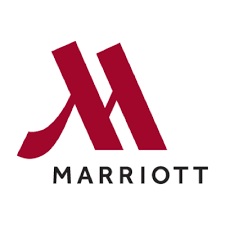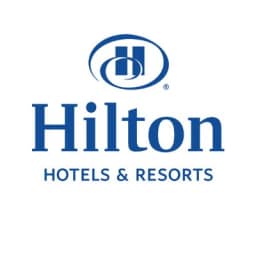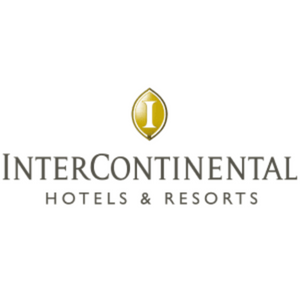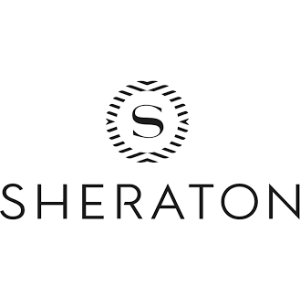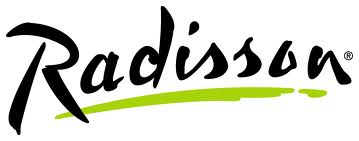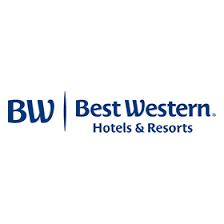Marriott Hotel Franchise in 2025: Costs, Fee & FDD
With a global reach and a prestigious brand, the Marriott franchise brand offers robust support and extensive market presence. Dive into our analysis to explore costs, fees, and key insights on the Marriott franchise.
Table of Contents:
Marriott International, founded by J. Willard Marriott and his wife Alice S. Marriott in 1927, is a global leader in the hospitality industry. Starting as a modest root beer stand in Washington, D.C., Marriott has evolved into one of the world’s largest and most well-known hotel chains. Over the decades, Marriott has built a reputation for exceptional service and innovative hospitality solutions, becoming synonymous with high-quality lodging and unparalleled guest experiences.
Marriott offers a diverse range of products and services across its extensive portfolio of brands, including Regis Hotels, the Luxury Collection, AC Hotels, Marriott Executive Apartments, Delta Hotels, Protea Hotels, Residence Inn, Renaissance Hotels, Fairfield Inn, and Aloft Hotels. Core offerings include premium accommodations, dining options, event spaces, and comprehensive guest services tailored to both business and leisure travelers. The brand operates a variety of properties, from luxurious full-service hotels to budget-friendly options, catering to a wide spectrum of travelers. Its core customers include business professionals, vacationing families, and international tourists seeking comfort and reliability during their stays.
Marriott International boasts an impressive global footprint with over 8,000 properties spanning more than 130 countries and territories. The company serves millions of guests daily, showcasing its vast scale and operational reach. This extensive network includes well-known brands such as Ritz-Carlton, Sheraton, and Courtyard, each designed to meet the unique needs of various market segments, from luxury seekers to budget-conscious travelers.
Marriott offers robust support for its franchisees, including comprehensive training programs designed to ensure consistency and excellence across its properties. The franchise support system includes pre-opening assistance, operational support, marketing resources, and access to Marriott’s global reservation system. Franchisees benefit from Marriott’s established brand reputation, industry-leading technology, and a network of experienced professionals dedicated to helping them succeed. This comprehensive support helps ensure that franchisees can deliver the high standards and exceptional service Marriott is known for.

Marriott Franchise Insights
- Marriott’s impressive 3-year failure rate of just 3% highlights the brand’s strong franchise support and operational efficiency, significantly outperforming the industry average of 6%. This low failure rate reflects Marriott’s commitment to helping franchisees thrive and maintain high standards across its global network.
- Marriott’s Bonvoy loyalty program is one of the largest in the hospitality industry, offering franchisees access to a vast and loyal customer base, which drives repeat business and boosts revenue.
- With over 8,000 properties in more than 130 countries, Marriott provides franchisees with a global platform and extensive market presence, enhancing their ability to attract international travelers.
- Marriott invests heavily in technology, including a cutting-edge reservation system and mobile app, which franchisees can leverage to streamline operations and enhance guest experiences.
Marriott Franchise Key indicators
Growth YOY (%)
0%
vs industry 2%
Total Investment
$95.89M-$158.03M
3-year Failure Rate
4%
vs industry 6%
Sales-to-Investment ratio
0.1:1
How much does it cost to open a Marriott franchise?
Understanding the potential investment size and capital requirements is crucial when considering opening a Marriott franchise. These financial commitments, including initial franchise fees, equipment costs, and ongoing operational expenses, impact the feasibility and profitability of the venture. Thoroughly evaluating these factors ensures that potential franchisees are prepared for the financial responsibilities and can make informed decisions about their ability to sustain and grow the business, ultimately contributing to long-term success.
Min & Max Investment
Opening a Marriott franchise involves several key costs, which are outlined in Item 7 of the Franchise Disclosure Document (FDD). you can see a breakdown of the costs to open a Marriott below from the most recent Item 7 below:
| Type of Expenditure | Minimum Investment | Maximum Investment |
|---|---|---|
| Initial Franchise Application Fee | $120,000 | $120,000 |
| Pre-Opening Training and Services | $114,000 | $181,000 |
| Property Management, Reservation, and Sales Systems | $217,000 | $287,000 |
| Other Systems and Training | $42,000 | $135,000 |
| Market Feasibility Study | $15,000 | $25,000 |
| Real Estate | Not Determinable | Not Determinable |
| Building Permit, Tap, and Impact Fees | Not Determinable | Not Determinable |
| Building Construction | $249,800 per guestroom | $416,300 per guestroom |
| Kitchen and Laundry Equipment | $6,300 per guestroom | $8,100 per guestroom |
| Furniture and Fixtures | $30,700 per guestroom | $39,200 per guestroom |
| Technology Hardware & Software and Network Infrastructure | $3,000 per guestroom | $14,800 per guestroom |
| Operating Supplies | $6,700 per guestroom | $8,600 per guestroom |
| Professional Design Services | $12,500 per guestroom | $20,800 per guestroom |
| Insurance | Varies | Varies |
| Start-Up Costs | $4,800 per guestroom | $7,500 per guestroom |
| Hard Cost Contingency (10% of hard costs) | Not Determinable | Not Determinable |
| Food Safety and Sanitation Compliance | $490 | $490 |
| Opening Advertising | $115,000 | $200,000 |
| Additional Funds (first 3 months) | $3,500 per guestroom | $8,000 per guestroom |
| Total Estimated Initial Investment | $95,892,590 | $158,033,990 |
Item 7 in the Franchise Disclosure Document (FDD) is the “Estimated Initial Investment” section. It outlines the total costs a franchisee can expect to incur when starting a franchise, including the initial franchise fee, equipment, inventory, real estate, and other startup expenses. This section is crucial because it provides potential franchisees with a detailed understanding of the financial commitment required, helping them assess affordability and plan their investment strategy effectively.
Required Capital
To open a Marriott franchise, the required capital involves both the initial investment and financial qualifications set by Marriott. Here’s an overview:
- Initial Investment The total estimated initial investment to open a Marriott franchise typically ranges from $95.89 million to $158.03 million, depending on the brand and property type. This figure includes the franchise fee, real estate, construction costs, equipment, and initial operating expenses. Of course, you should assume that you will need financing for this investment, which would mean you would only need to inject a minor percentage of the total investment in the form of equity (cash).
- Liquid Assets Requirement Marriott generally requires franchisees to have a minimum of $1 million in liquid assets. This ensures that franchisees have sufficient funds to cover unforeseen expenses and maintain financial stability during the startup phase.
- Net Worth Requirement For Marriott franchises, the recommended net worth requirement is usually around $10 million. This net worth should include the value of assets such as real estate and investments, minus any liabilities.
How much does a Marriott franchise owner make?
The most important factor in determining the income for a Marriott owner is the number of rooms they have in their hotel and the occupancy rate. These two factors, combined with the average per night stay, are necessary to calculate earnings.
Calculating the salary of a Marriott franchise owner involves analyzing gross sales to determine total revenue, assessing operational efficiency to understand profit margins, and accounting for franchisor fees and additional expenses such as rent, utilities, and payroll. Effective management of these factors can significantly impact the profitability and financial success of a Marriott franchise owner. This comprehensive financial analysis helps estimate net profits, from which the owner’s salary can be derived. A clear understanding of these factors ensures accurate salary projections and financial planning for sustainable business operations.
Marriott Revenue & Gross Sales
The median gross sales for Marriott franchises are not publicly disclosed and can vary based on location, market conditions, and individual store performance. However, the overall performance of Marriott franchises appears to be strong, based on it’s strong market presence and the potential for substantial revenue generation for franchisees. Note that the gross sales are going to be very dependent on a per location basis based on the number of rooms of the hotel.
Which key factors impact the average revenue performance of Marriott franchisees?
Several factors have contributed to the impressive U.S. franchisee median gross sales revenue performance for Marriott. The brand’s strong global recognition and reputation attract a consistent stream of guests, enhancing occupancy rates and revenue. Marriott’s diverse portfolio, offering everything from luxury to budget-friendly options, caters to various market segments, ensuring broad customer appeal. The Marriott Bonvoy loyalty program encourages repeat business from millions of members, boosting occupancy and sales. Additionally, prime property locations in city centers, business districts, and tourist destinations drive higher foot traffic. The overall health of the economy plays a significant role, as increased travel and tourism spending boost hotel revenues. Robust marketing and sales strategies, coupled with comprehensive franchisee support, ensure efficient management and high standards, contributing to financial success. Marriott’s focus on delivering exceptional guest experiences leads to positive reviews and increased bookings, further enhancing revenue.
Marriott Franchise Operational Costs
When considering opening a Marriott franchise, it’s crucial to understand the various ongoing operational costs involved. These expenses are vital for maintaining the high standards associated with the Marriott brand and ensuring the smooth day-to-day operations of the hotel. By carefully planning and budgeting for these costs, you can set your franchise up for long-term success.
- Staffing Costs Salaries, wages, benefits, and training for hotel staff, including management, housekeeping, front desk, and maintenance personnel.
- Utilities and Maintenance Costs for electricity, water, heating, cooling, and routine maintenance of the property to ensure it remains in excellent condition.
- Franchise Fees Ongoing royalty fees and marketing contributions required by Marriott, typically a percentage of gross sales.
- Supplies and Inventory Regular purchases of guest amenities, cleaning supplies, linens, and other operational necessities.
- Marketing and Advertising Expenses for local marketing efforts, promotional activities, and participation in Marriott’s broader marketing campaigns.
- Insurance Coverage for property insurance, liability insurance, and other relevant policies to protect the business.
- Technology and Software Costs for maintaining and upgrading property management systems, reservation systems, and other essential technology.
- Property Taxes and Rent Payments for property taxes and any lease agreements if the property is not owned outright.
Understanding and planning for these ongoing operational costs is essential for any potential Marriott franchisee. By accounting for these expenses, you can ensure that your franchise not only meets Marriott’s high standards but also operates efficiently and profitably. Proper financial management and budgeting for these costs will help pave the way for a successful and sustainable business venture within the esteemed Marriott network.
Marriott Franchise Fees
Owning a Marriott franchise is different from owning an independent, non-franchised business. All franchises tend to charge ongoing fees that franchisees are required to pay to operate. Marriott requires their franchisees to pay the below fees:
- Franchise Fees This is a monthly fee paid to Marriott, typically calculated as a percentage of gross sales. For Marriott, this fee is 6% of gross room sales, plus 3% of gross food and beverage sales.
- Program Services Contribution Franchisees must pay 1.62% of gross room sales (which includes a contribution to the Marketing Fund of 1% of gross room sales), plus $50,000 per year, plus $510 per guestroom per year.
- Sales & Marketing – Marriott Bonvoy An amount equal to 4.2% of qualifying revenue generated by customers earning loyalty points or miles, plus 1% of qualifying event revenue for select group events and catering events (up to $300 per event). The cost to purchase additional loyalty points ranges from $2.75 to $12.50 per 1,000 points, depending on the total quantity purchased.
- Additional Fees There might be other fees not listed here that are specific to certain services or requirements by Marriott.
These ongoing fees are essential to consider when planning the financial aspects of owning and operating a Marriott franchise. They cover the costs of brand support, marketing, and ongoing operational assistance provided by Marriott.
Marriott Franchise Earnings
Although the company does not provide an Item 19 in its Franchise Disclosure Document (FDD), which would typically include gross sales or financial performance representations, it’s known that Marriott franchises can be highly profitable based on their extensive brand recognition, strong customer loyalty programs, and premium market positioning.
Earnings for Marriott franchise owners vary depending on factors like location, size, and the market segment of the hotel (e.g., luxury, upscale, or mid-range). Marriott properties generally operate with higher occupancy rates and premium pricing compared to smaller hotel brands. For owner-operators, profitability depends heavily on operational efficiency, local market conditions, and the hotel’s ability to maintain high guest satisfaction, which often correlates with repeat business and strong brand reputation. While exact figures aren’t available, Marriott franchisees typically report solid returns, particularly in prime urban or tourist locations.
How to Open a Marriott Franchise
Becoming a Marriott franchisee involves a series of steps designed to ensure that potential franchisees meet the brand’s standards and are well-prepared to operate a successful hotel. The process starts with an initial inquiry and culminates in the launch of your Marriott franchise. Here’s an overview of the steps involved:
- Initial Inquiry You or your franchise consultant submits an initial inquiry through the Vetted Biz website or directly contacts a franchise specialist. This step allows you to express your interest, receive preliminary information, and start the qualification process.
- Preliminary Evaluation You review the initial information provided, including franchise requirements and financial expectations. This helps you determine if you meet the basic qualifications and if the Marriott franchise aligns with your business goals.
- Application Submission If your preliminary evaluation is favorable, you’ll complete and submit a detailed franchise application form. This application asks for comprehensive information about your background, financial status, and business experience.
- Interviews and Meetings Successful applications lead to interviews and meetings with Marriott representatives. This stage involves discussing your application, business plan, and fit with the Marriott brand.
- Site Selection and Approval You identify a suitable location for your franchise and submit it for approval. This ensures the site meets Marriott’s criteria and is strategically positioned for success.
- Franchise Agreement Signing You review, negotiate, and sign the franchise agreement. This formalizes your commitment and outlines the terms of the franchise relationship.
- Training and Preparation You complete Marriott’s training programs and prepare your property for opening. This equips you and your team with the necessary skills and knowledge to operate the franchise effectively.
- Grand Opening You launch your Marriott franchise and begin operations. This is when you start welcoming guests and applying Marriott’s operational standards to ensure a successful start.
Pros & Cons
Pros
Brand Recognition: Marriott is a globally recognized brand with a strong reputation, which can attract guests and help ensure a steady stream of customers.
Established Systems: Marriott provides a well-established business model, including operational procedures, marketing support, and training programs, which can reduce the learning curve for new franchisees.
Global Network: Being part of Marriott’s extensive network offers access to a global reservation system and a wide customer base, enhancing visibility and booking potential.
Support and Training: Franchisees benefit from comprehensive support and training programs, including property management, marketing strategies, and operational best practices.
Marketing and Advertising: Marriott’s substantial marketing and advertising resources can help drive brand awareness and attract guests to your franchise.
Cons
High Initial Investment: The cost of purchasing a Marriott franchise can be significant, including franchise fees, property acquisition, and renovation costs, which may be a barrier for some investors.
Ongoing Fees: Franchisees are required to pay ongoing royalty fees and contribute to the brand’s marketing fund, which can impact profitability.
Operational Standards: Strict adherence to Marriott’s operational standards and brand guidelines may limit your flexibility in making independent business decisions.
Competitive Market: The hospitality industry is highly competitive, and operating a Marriott franchise means competing with other hotels and franchises in the area.
Long-Term Commitment: The franchise agreement typically involves a long-term commitment, which may limit your ability to exit the business if your circumstances change.

